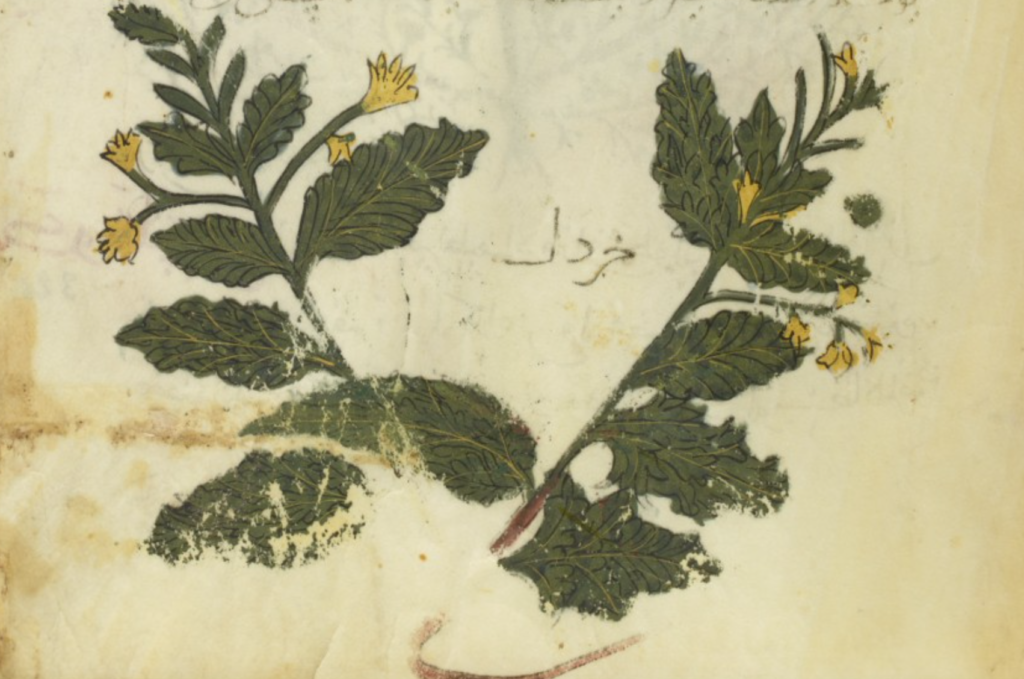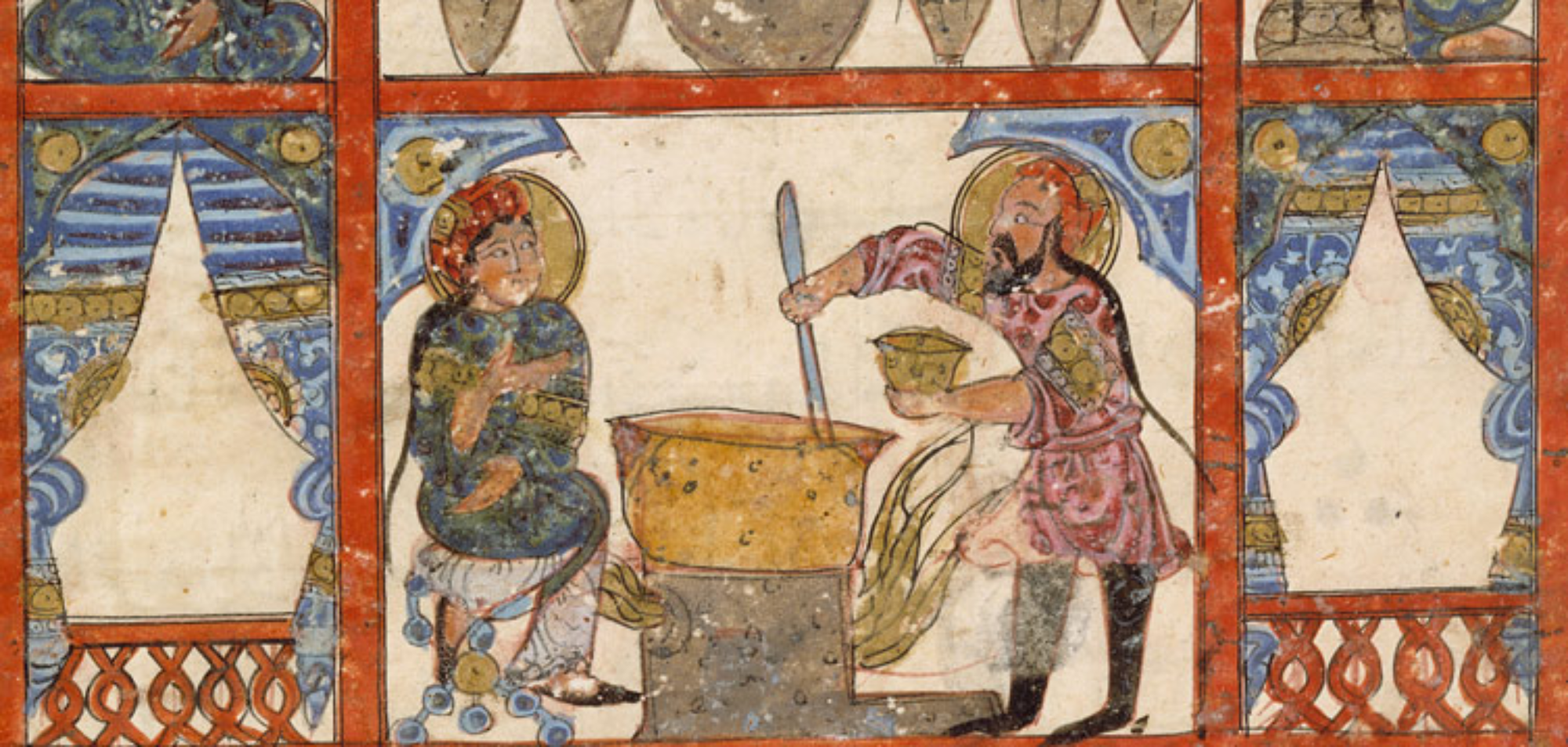Originally from Aramaic, the word refers to both white and black mustard (seeds). In cooking, the seeds – both whole and ground – are often required, with the black variety being used more often than the white/yellow. It is used to great effect, for instance, in the mustard chicken attributed to the Abbasid caliph al-Wathiq bi-‘llah. Mustard also appears in condiments, including a dip with raisins, known as sināb (صناب). The 13th-century anonymous Andalusian treatise instructed washing old mustard seeds with hot water before using them. Conversely, fresh mustard seeds do not need to be washed since they are tart without being bitter. The word also occurs twice in the Qur’ān (21:47; 31:16), where it is mentioned that even deeds weighing one mustard seed will be taken into account on the scales of justice. In medicine, cultivated mustard was preferred to the wild variety; it was considered useful against inflammations, tumours, scabies, and sciatica. It was also thought to increase intelligence (if taken on an empty stomach) as well as lust.

